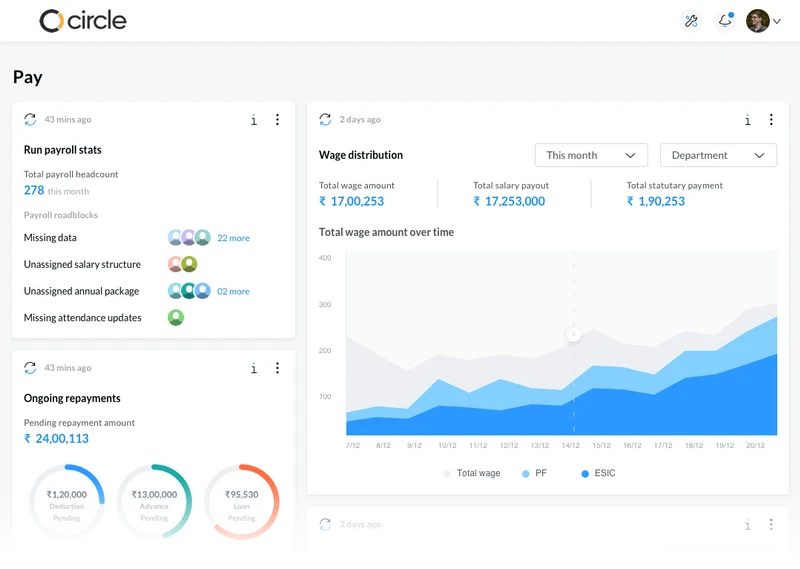The payroll process forms the basic mechanism by which a business compensates its employees for their work. The process requires a reliable method of calculation and delivery and compliance with all applicable local and national labour laws and collective agreements. However, being an extensive process, there are sometimes chances of errors that may hinder the overall process. Hence, it becomes extremely crucial for organisations to identify these payroll errors and fix them immediately. Let’s explore them!
5 Most Common Payroll Mistakes
- Inappropriate Classification of Employees
Employee classification is used to identify employees eligible for company benefits. Misclassification of employees can lead to incorrect pay, resulting in ramifications for your business. Misclassifying employees is a common error when the payroll department cannot determine whether an employee should fall under the exempt or non-exempt employees category.
In terms of Indian employment law, all employees must receive overtime pay for any hours worked over 48 hours per week unless they are classified as exempt. Incorrect classification of a non-exempt employee as exempt not only opens your organisation to Indian labour law-related fines and statutory penalties but can also make an employee miss out on overtime earnings he is liable to receive. It might lead to employee dissatisfaction and low motivation.
Another common payroll mistake occurs when human resource management classifies an individual as an independent contractor rather than an employee for tax and legal purposes. In such cases, human resource management must review historic payroll records and make retrospective payments or adjustments to employee salaries. This misclassification harms employees’ morale and will likely cost your organisation unforeseen money.
- Compensating the Wrong Amount
Receiving a miscalculated paycheck can be frustrating for any employee, particularly if the error causes a delay in payments. Miscalculations can result in wasted time – valuable time as the human resource management needs to dedicate hours and personnel to investigate and rectify these errors. In the meantime, employees tend to grow frustrated as they face trouble paying their bills due to delayed salaries. A recent EY-Refyne survey collected responses from 3,000 salaried Indians says that 80% of employees exhaust their salary before the month’s end.
Some of the common miscalculation scenarios include the following:
- Overpaying or underpaying employees
- Making erroneous retroactive payments
- Missing the first paycheck for recruits
- Incorrect deductions from the salary, such as professional tax, insurance, union dues, etc.
- Not differentiating between authorised and unauthorised absence
- Not verifying the deductions in the case of disabled employees or the ones under the exempt category
- Miscalculating Employee Hours and Overtime
Employee working hours and overtime are the major components when calculating payments, especially for employees paid per working hour. Computing working hours and overtime may sometimes result in improper overtime payments. This, later on, can lead to several days of rectifications and calculations spanning multiple tax years.
Conversely, overpaying employees can lead to a lengthy rectification process. Correcting these errors takes time and can be extremely disturbing for employees, who must return the money received.
Paying overtime is not just about paying employees the standard 1.5 times their normal pay rate when they work over regular working hours. Misjudgement of working hours and overtime hours can arise if you miss a payment in any of the following cases:
- When employees work during break times
- When employees are working off-site or spend time travelling between work sites
- When employees are engaged in activities outside of normal hours, for example, in training, team building, or corporate events
- Payroll Tax Mistakes
Payroll tax mistakes are considered one of the most costly as they can attract heavy fines and penalties.
Some potential payroll tax mistakes are:
- Late filing of taxes – The Indian income tax authority gives a due date for filing the taxes, and missing this deadline can attract a penalty and late fee.
- Human errors – Incorrect figures/totals and improperly filling up the tax forms can lead to inaccurate remittance.
- Incorrect tax – Paying the wrong tax rate requires calculating the difference in owed taxes later. You might also have to pay penalties or interest on the taxes.
Here are key payroll taxes you should be updated with:
- Indian Income Tax
- Social Securities
- Employer and Employee Contribution
- Incorrect Payroll Cycle Frequency
The payroll cycle refers to the period for which an employee is compensated. This can be weekly, monthly, etc. However, in India, the pay period is usually on the 30th or 31st of the month.
Not paying your employees on time can instigate them to file suit against you. Chronic procrastination in payment schedules might also affect employee satisfaction and lead to frustration.
An incorrect payroll frequency can also affect medical benefits and tax computation. Not getting payroll inputs on time and at fixed intervals can also defer various benefits.
For example, if an employee retires on the 15th of January and the payroll isn’t processed by the end of the month, their salary will be deferred for another month.
How to Fix These Payroll Errors
- HR roles and responsibilities should set a regular payroll cycle frequency. Understand and implement Indian employment laws to ensure your state permits your organisation’s pay cycle.
- Keep track of tax regulations and rates and deduct payroll taxes accordingly.
- Submit the appropriate tax forms, such as Form 941 and forms for reporting Medicare tax, Social Security tax, etc.
- Invest in the right tools and resources. Use automated payroll software for payroll processing and tax computation.
- Keep your employee records updated. All the details regarding employment, such as name, age, employment type (permanent or contractual), etc., should be kept on records for proper classification. Accurate record-keeping ensures no mistake in the classification of employees, the computation of the minimum wages or overtime pay, etc.
- Provide requisite forms to employees for fulfilling their tax obligations, such as Form 16.
- Some labour laws and policies vary from state to state. Hence, human resource management should stay in the loop with applicable regulations for your organisation.
- Promote open communication. Inform employees about the errors in their payslips and actions being taken to rectify them.
- Run a payroll report before the final process to let the employees verify their payslips and inform them of any discrepancies.
- Identify the error source and devise a solution to prevent any recurrence.
- Human resource management must keep accurate and clean payroll records.
Navigating the complexities of payroll is of utmost importance to avoid any errors in your organisation’s functioning and maintain a smooth payroll process. While the payroll process might appear to be just another tedious HR activity, it affects many larger elements of the organisation, like employee satisfaction and company culture. Hence, investing in the right tool, such as a payroll management service provider, is always a good decision so your company doesn’t pay for the errors later.
Wrapping Up
Payroll mistakes are common but tedious to rectify. Countless issues appear while processing the payment – mostly when done manually. The problem amplifies when the payroll needs to be managed at a global level. To avoid the cumbersome job of payroll correction, you can always opt for an automated payroll management system software.
sumHR is a payroll service provider that helps you calculate and dispatch monthly payments smoothly. The all-in-one HRMS software streamlines all HR roles and responsibilities, such as payroll, performance appraisal, attendance, leave management, etc. Visit our website today!








